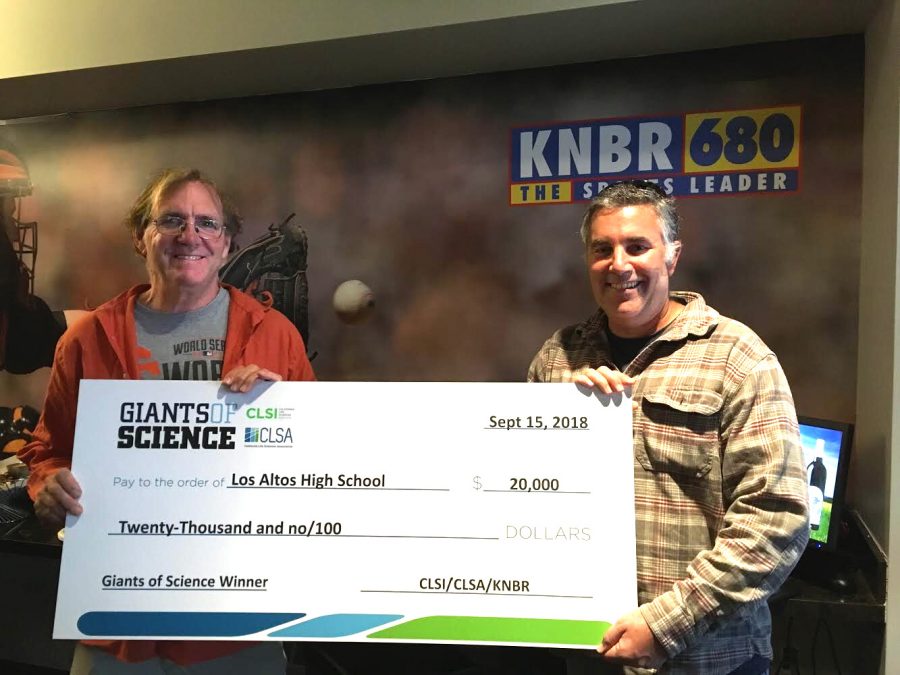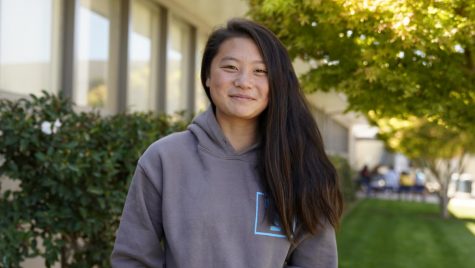Stoehr wins a Giant grant
Environmental science teacher Greg Stoehr and biology teacher Jacob Russo hold the winning grant check for the Giants of Science competition. The money will go to fund Stoehr’s bioprospecting project. Darren Dressen.
October 10, 2018
During the San Francisco Giants baseball game on September 15, environmental science teacher Greg Stoehr was presented $20,000 after winning the final round of the 2018 Giants of Science Bay Area competition. Stoehr submitted a project proposal called bioprospecting, which refers to the search of characteristics an organism has that could potentially help develop new medicines and chemicals. His bioprospecting project is meant to help science students at Los Altos learn how their efforts in STEM can contribute to something as significant as treating diseases.
Sponsored by the Giants, this contest is run by groups of biomedical companies called the California Life Sciences Association (CLSA) and the California Life Sciences Institute (CLSI), in an attempt to encourage the growth of sciences in local high schools. Stoehr passed both rounds of the competition to win the grant, which he will use to purchase more sophisticated equipment and fund field trips to the baylands, forests, the ocean and around campus.
Outside the classroom, students will collect samples of plants and soil to bring back to the lab. After crushing up the samples, students will transfer it to a petri dish and test to see if the specimen exhibits antibiotic activity.
“It’s kind of like how they found penicillin,” Stoehr said. “It just landed on a petri dish and killed bacteria — so [my project] is the same idea.”
Samples demonstrating antimicrobial activity will be sent to biotech teacher Meghan Straz for her class to perform thin layer chromatography tests on. After locating and isolating the antibiotic chemical, the results could be sent to the chemistry class for further analysis.
“[This project] allows students to see things from start to finish,” Straz said. “We [want] students [to] see the complete project: from field work, collection work, all the way to the lab work, just seeing how [this] could lead to new medicines, new chemicals or new things in the medical field.”
In this way, bio-prospecting not only provides students with an end goal, but also allows the maximum number of students to participate and see the project through to its completion.
Mainly students in life science classes and potentially chemistry will benefit from this grant, however, the grant could also fund student projects in the Advanced Scientific Investigations class too.
“Mr. Stoehr is contributing to us,” Straz said. “Really, what he did with writing this grant [is that] he didn’t just enhance his class, he wrote it so that all of us could be enhanced.”




